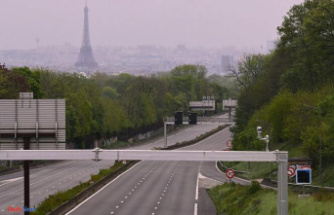All the police forces without exception have joined hands today to protest the reform of the Citizen Security Law, known as the Gag Law, in a macro-demonstration that runs through the main streets of Madrid. The change in the regulations supposes, they say, a shot so alien to their way of working that, they emphasize, they have had no choice but to take the capital to try to make the Government of Pedro Sánchez reflect.
Jusapol - a platform formed by agents of the National Police and the Civil Guard of all their scales and categories - has once again organized the protests. Agents of the Civil Guard, the National Police and the regional police repeat today the mobilization of November 27, 2021, a protest that made history for being massive and for bringing together national, local police officers for the first time in a mobilization and autonomous and the Armed Institute.
"It is an outrage against the rights and freedoms of citizens, this reform is harmful to society. We agents are here to protect citizens and this reform will prevent us from doing so," said Miguel Gómez, president of the Jusapol platform. . The general secretary of Jupol, Aarón Rivero, has spoken in the same terms. "Today we have taken to the streets out of responsibility because this change affects us all and it does not have the endorsement of the technicians, who are us. The Government has to sit down with us." The general secretary of the majority group of the civil guard, Jucil, Ernesto Vilariño, has insisted on the "lack of protection" to which, according to him, the agents will be subjected. "We do not feel supported. This law is going to seriously harm the State Security Forces and Corps."
Gómez has also had words for the Minister of the Interior, Fernando Grande-Marlaska, whom he accused of turning his back on them. "He has the responsibility to defend us but we have not seen him throughout this process. We feel very helpless." The mobilization was attended by the PP vice-secretary for public liberties, Esteban González Pons, the people's deputy Ana Vázquez and 14 other parliamentarians from Alberto Núñez Feijóo's party.
The rhythm that the central Executive has set behind the scenes for the change has enervated the State Security Forces and Corps.
On December 21, Congress convened the first presentation in charge of this law. That it was done in the last ordinary session of the year raised blisters. In it, it was approved, among other things, that the demonstrations in front of the Congress of Deputies would cease to be a crime.
In addition, uncommunicated protests in basic service areas and their surroundings will cease to be very serious infractions to become serious. The amendments to modify the regulations also contemplate not penalizing anyone who causes public disorder when they are a minor or have limited economic capacity.
Later, the second day of the presentation was held in the Lower House. In one hour, 29 amendments were approved, a speed that made clear the intention of the Executive to settle this controversial issue as soon as possible.
Among the most important novelties approved in the last presentation, the annulment of administrative sanctions prior to the modification of the law that are in process or not started, the training of police officers and civil guards to mediate in demonstrations -who will no longer have to communicate - And the obligation of the agents to notify and audibly give the demonstrators time before dissolving the concentrations.
The points that continue to provoke the rejection of government partners are those referred to the lack of respect for authority, disobedience to members of the security forces, the use of rubber bullets and the forced return of immigrants.
According to the criteria of The Trust Project












